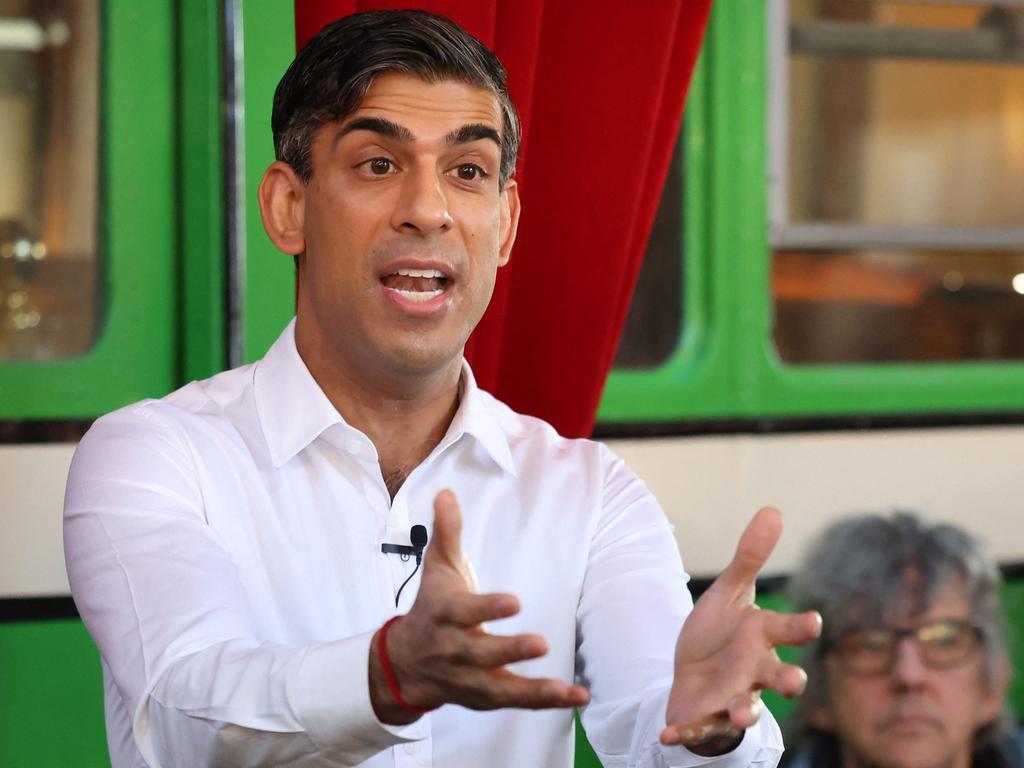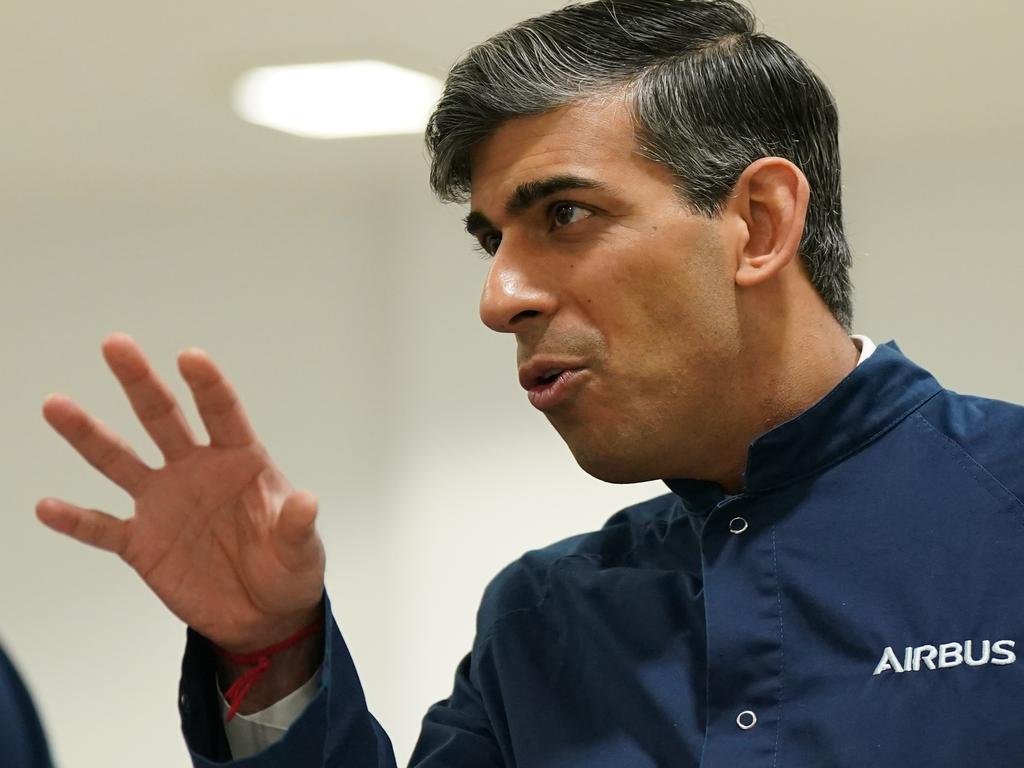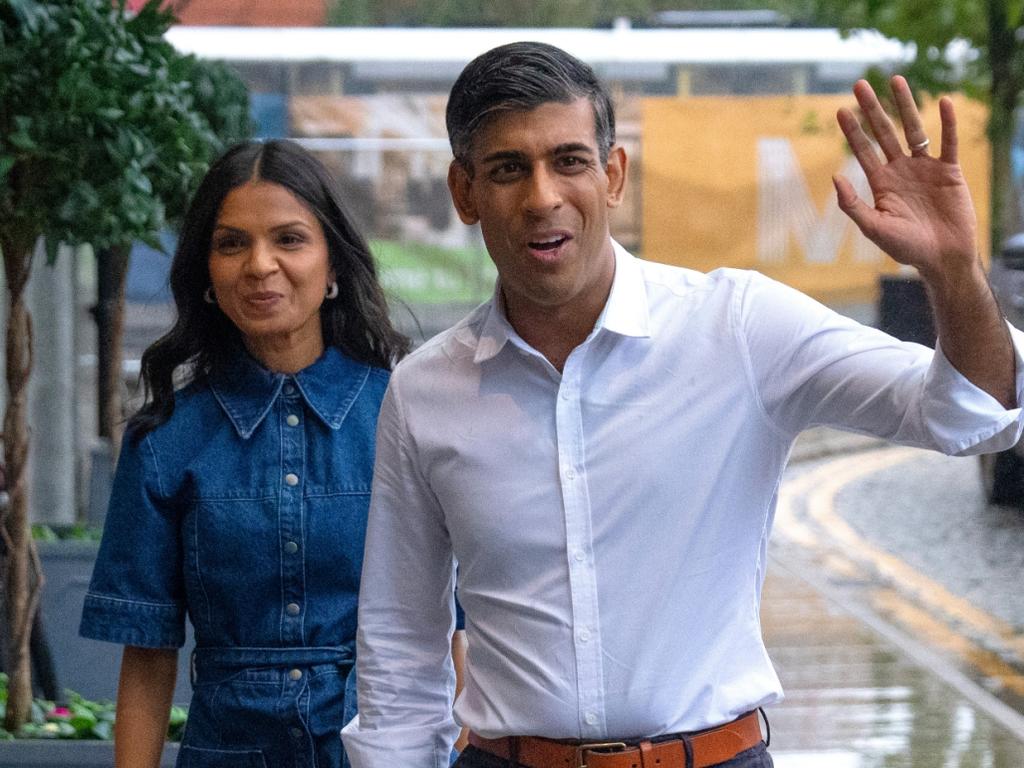Why call an election now? Rishi’s gamble explained
All of this makes his decision to call a general election in just over six weeks seem inexplicable.
The latest YouGov polling for The Times conducted last week shows the Tories are languishing 27 points behind Labour in the polls, with no evidence that their position is improving.
By going for an election at short notice Sunak loses the potential advantage of an autumn statement which he could use for further tax cuts. So why has he decided to go now?
One reason is the economy. The prime minister had been factoring in three potential interest rate cuts this year before going to the polls in the autumn. In fact the markets suggest there could now be one, and that is not guaranteed. Inflation has proved to be more stubborn than expected and the Bank of England has been more reticent than hoped.
It is suggested that there will probably be little money for further tax cuts or other pre-election giveaways. Borrowing is higher than expected and economists are warning that whoever wins will have to either increase taxes or cut public spending.
By going to the country now, Sunak can campaign against the backdrop of falling inflation and the prospect of interest rate cuts that fits with the Tories planned narrative of “sticking to the plan”. By waiting longer, Sunak risked Labour turning that against him and arguing that the plan wasn’t working.
The other reason is illegal immigration. Flying asylum seekers to Rwanda has been one of the prime minister’s central pledges but also the one with the most jeopardy. Wait until autumn to hold an election and the plan might have been bogged down in the courts or, worse for the Conservatives, flights might have taken off with no discernible impact on the number of Channel crossings.
With a July election, Sunak either gets the first flight off the ground during the campaign or can use the argument that a vote for Labour (or indeed Reform) is a vote to kill the nascent Rwanda scheme.
Then there is the simple element of surprise. After Sunak ruled out a May election, Labour largely assumed that “second half of the year”, as Sunak promised, meant the autumn.
The Tories go into the campaign with a huge financial advantage. In the year to April they raised £35 million compared with Labour’s reported donations of £24 million. Getting Labour donors to redress this balance in six weeks is a big ask.
There is also a question over Sunak’s appetite for going long. This year he was said to cut an increasingly dejected figure, frustrated that voters were not responding to his carefully orchestrated announcements and plans.
While he has been more “chipper” in recent weeks, those close to him have suggested that holding out for longer would become an exercise in endurance.
For Conservatives there is a chance that things can change during the campaign itself. Theresa May recently said that her ill-fated decision to call a general election in 2017 could offer hope. On the day she called the election the Tories had a poll lead of more than 20 percentage points, but in subsequent weeks that lead collapsed and the party came 2.4 points ahead of Jeremy Corbyn’s Labour Party.
In truth there is no precedent. Sunak is attempting to pull off a turnaround that would be truly unique in modern political history. It leaves Sunak with no choice but to take risks, and it sets the scene for a fraught and bruising six-week contest.
The Times







Rishi Sunak is not renowned for taking risks. His approach as prime minister has been about calming nerves and instilling stability after Liz Truss’s disastrous 49-day tenure as prime minister.